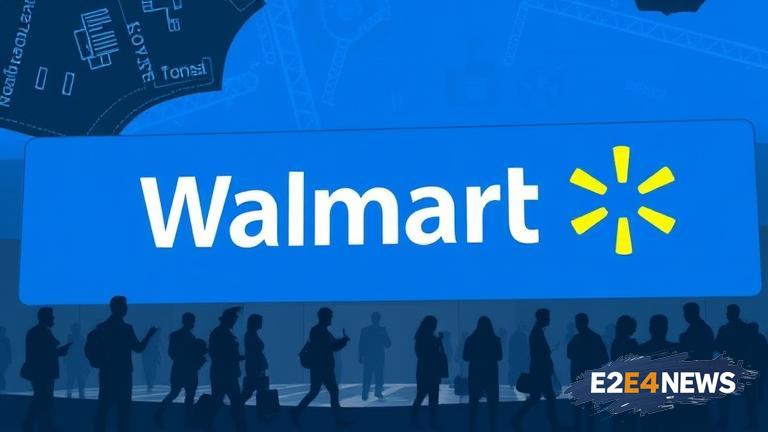The H-1B visa program, which allows US companies to hire foreign workers in specialty occupations, has come under fire in recent months. Walmart, one of the largest employers of H-1B visa holders, has been caught in the storm. The company has been accused of displacing American workers with cheaper labor from India, sparking outrage among lawmakers and workers’ rights groups. The controversy has raised questions about the effectiveness of the H-1B program and its impact on the US job market. The program was designed to fill labor gaps in the US tech industry, but critics argue that it has been exploited by companies to cut costs. Walmart has denied any wrongdoing, stating that it hires H-1B visa holders to fill specialized positions that cannot be filled by American workers. However, an investigation by the US Department of Labor found that the company had indeed displaced American workers with H-1B visa holders. The incident has sparked a heated debate about the need for reform in the H-1B program. Lawmakers have proposed several bills aimed at curbing the abuse of the program, including increasing the minimum wage for H-1B visa holders and requiring companies to prioritize American workers. The Indian government has also weighed in on the issue, expressing concerns about the impact of the controversy on Indian tech workers. The US is the largest destination for Indian tech workers, and any changes to the H-1B program could have significant implications for the Indian economy. The controversy has also raised questions about the role of outsourcing companies in the H-1B program. Many of these companies, which provide IT services to US companies, rely heavily on H-1B visa holders. The US government has proposed new rules aimed at curbing the abuse of the program by outsourcing companies. The rules would require companies to disclose more information about their H-1B visa holders and to prioritize American workers. The proposed rules have been met with resistance from the tech industry, which argues that they would stifle innovation and limit access to skilled labor. The controversy surrounding the H-1B program has also sparked a wider debate about the impact of globalization on the US job market. Many Americans feel that the program has contributed to the decline of the US manufacturing industry and the loss of American jobs. The issue has become a major talking point in the US presidential election, with several candidates proposing reforms to the H-1B program. The future of the program remains uncertain, with many predicting that it will undergo significant changes in the coming years. The impact of these changes on Indian tech workers and the US tech industry remains to be seen. As the debate continues, one thing is clear: the H-1B program is in jeopardy, and its future will have significant implications for the global economy. The US government must balance the need to protect American workers with the need to ensure that US companies have access to the skilled labor they need to compete in the global economy. The Indian government must also navigate the complex issue, working to protect the interests of Indian tech workers while also promoting the growth of the Indian economy. The controversy surrounding the H-1B program is a complex issue with no easy solutions, but one thing is clear: the program is in need of reform. The US government must take a comprehensive approach to addressing the issues surrounding the program, including increasing transparency and accountability, and ensuring that American workers are protected. The Indian government must also work to promote the growth of the Indian economy, while also protecting the interests of Indian tech workers. The future of the H-1B program will have significant implications for the global economy, and it is essential that policymakers take a thoughtful and comprehensive approach to addressing the issues surrounding the program.
